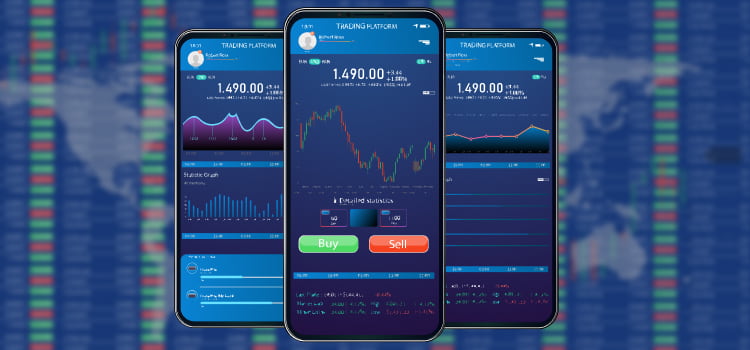The cryptocurrency market is volatile, with significant fluctuations in the rate. Experienced traders use this feature to make an income, knowing how to calculate the rate jumps in advance. But they are also ready to share their knowledge with novice by providing trading signals about profitable deals. Let’s figure out what trading signals are and whether they are worth trusting.
What do trading signals mean?
You should have efficient strategies for profitable currency trading on crypto-exchanges. Newbies are wondering which cryptocurrency is worth buying and when? It is difficult to determine when to dispose of assets in order not to go through losses. This is where trading signals come in.
Trading signals for crypto are recommendations for traders about profitable points of purchasing and selling currencies.
The principle of operation is quite simple. A beginner trader only needs to follow the analyst’s recommendations — open and close orders based on signals provided immediately when the market changes.
Cryptocurrency signals are delivered through specially designed communication sources in chats, instant messengers, social networks, or others.
There are many sources of cryptocurrency trading signals; here are the most popular:
- It is better to use paid sites because few people want to share potentially profitable data for free, so signals are usually provided on a paid basis. However, some sources provide analytics for free.
- There are closed communities. They share privacy and insider data that will let you work correctly with cryptocurrency.
- You can also use professional services that will provide you with new analytical data. You can also explore trend analysis with us.
- You can also use programs that provide consistent data from different sources.
Trading success when using trading signals
Trading signals are the result of detailed market monitoring. Signals can be inside data from most market players. Moreover, signals can notify about a pump or dump of cryptocurrencies and result from professional traders’ analytical work.

The provider of trading signals can be an experienced investor or analyst who controls the market and quotes. They determine trading strategies and when to buy or sell assets. Besides, signals can be given by the market scanner, a smart algorithm that is connected to all exchanges to which it offers signals. The algorithm scans the markets for probable entries.
Many providers give signals to only one specific asset or analyse several top ones. Some work with signals for traders; others advise on the placement of investments and signals to sell assets.
Signal providers may be direct and indirect. The former allows data from the first person, usually in a narrowly defined direction. The latter collect data from various sources, let signals to the exchange based on their research recommendations or copy other analysts’ advice.
Signal recommendations can be provided by crypto exchanges, brokerage, consulting companies, professional traders, or trading advisors.
Should you trust cryptocurrency signals?
The cryptocurrency market is young enough and has become an attractive field for fraud. According to the experts’ tips, many inexperienced traders in this market are ready to follow the least resistant path and manage their savings relying only on signals. But, unfortunately, not all signals for currency trading are accurate, especially from free information sources.

You can trust signals because:
- Signal providers make money indirectly or directly from providing information and attracting more users. This can be achieved only by offering quality and correct market analytics.
- Trading signals greatly simplify the conclusion of successful trades, especially for novice traders. Some sources can share data about upcoming changes or promptly inform about course movements on a paid or free basis.
You don’t need to trust the signals blindly.
- You should understand that a trading signal is only a recommendation for traders and not a call to action; therefore, signal providers are not responsible for profits.
- Only the trader should decide what principle to follow when trading. Trading signals let you find out information as quickly as possible without following the cost on trading floors independently.
Even experienced traders are in error and have to put up with the loss of funds.
Following signals is the only correct solution for novice traders. They will not be superfluous at all for experienced market participants. Signals can always be compared and used when there is no time to analyze the market situation.